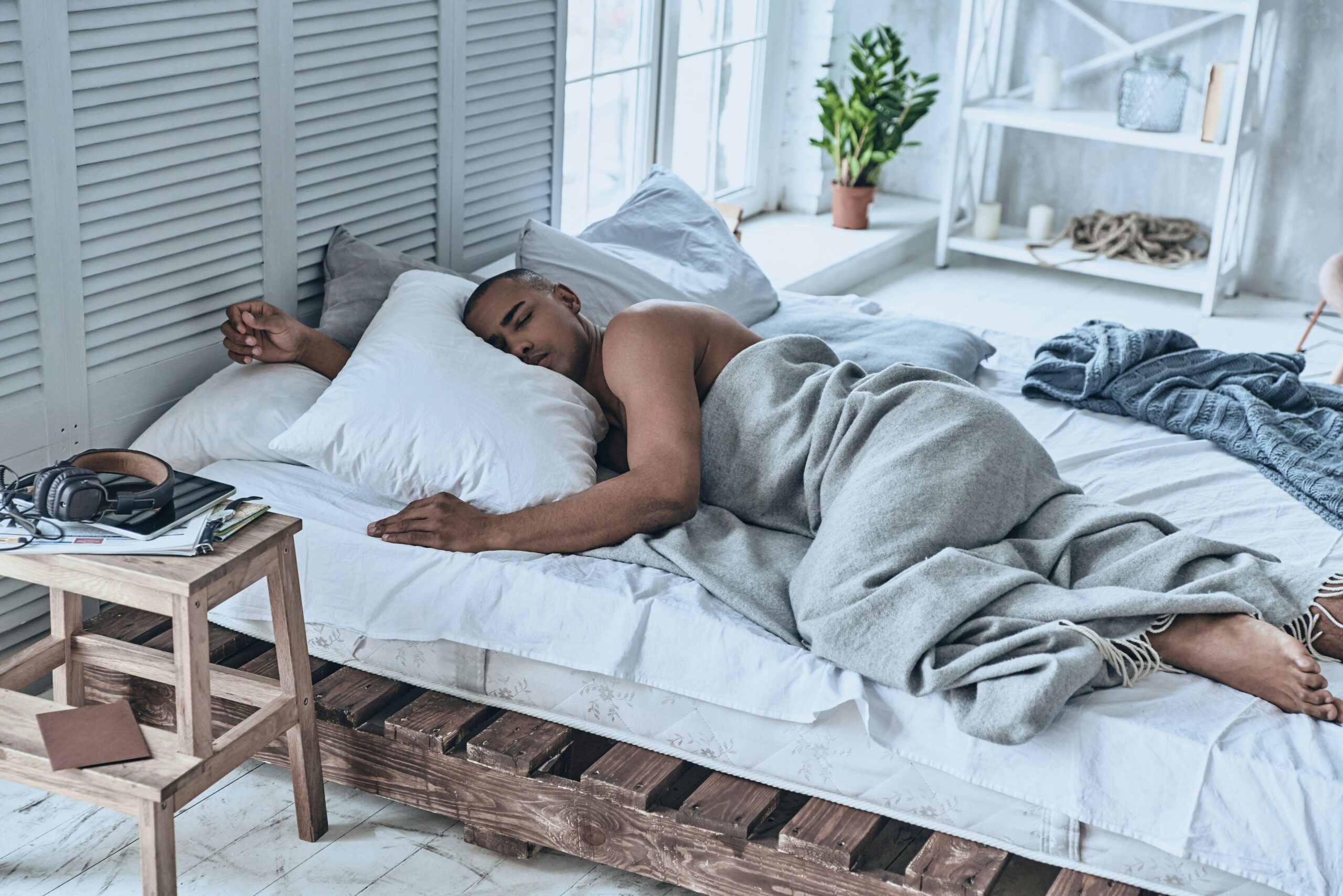Not getting enough sleep is a common problem that can interfere with every part of your life. It impacts your emotional and physical health, leading to further problems. Finding natural remedies for getting more sleep is a beneficial way to get more rest and improve your life.
The Impacts of Not Getting Enough Sleep
Lack of sleep is common, and the Centers for Disease Control and Prevention (CDC) explains that over 36% of adults aren’t getting enough sleep. Experts suggest getting at least seven hours of sleep daily, although this number shifts slightly based on age.
Insufficient sleep can impact your concentration, memory, and mood, and it can increase your risk of becoming depressed. It also makes you more likely to face obesity, type 2 diabetes, high blood pressure, and heart disease. Plus, not getting enough sleep may impact your work-life balance.
Improving your sleep naturally can help you alleviate the detrimental aspects of not sleeping enough without taking medication.
How to Get More Sleep
Getting more sleep can drastically improve your life, and you can try plenty of natural remedies.
Adjust Your Sleep Routine
Implementing a bedtime routine can help signal to your body that it’s time to go to sleep. Go through the same steps at the same time each night, and make sure you have a quiet, calm environment. Your bedtime routine could include listening to soft music, reading, meditating, journaling, or anything else that helps you relax.
Another part of your sleep routine to prioritize is when you wake up. Try waking up at the same time daily, even if you don’t have to work or be ready at a specific time. It helps you maintain your internal clock, allowing you plenty of rest.
Sleep in a Cool Room
If it’s too hot in your bedroom, it could interfere with your sleep. The ultimate temperature depends on personal preference, but experts believe between 65 and 68 degrees is ideal. You
can also stay cool at night by wearing breathable fabrics like cotton and using a light sheet on warm nights instead of a thick blanket.
Increase Magnesium
A magnesium deficiency can lead to sleeping problems, so increasing your intake can help. Many foods contain magnesium, including pumpkin seeds, almonds, spinach, and more. If you still experience magnesium deficiencies after adding more to your diet, you can find a supplement at most pharmacies.
Cognitive Behavioral Therapy
Cognitive behavioral therapy (CBT) can help treat long-term insomnia through meditation, improving sleep hygiene, and other strategies. This treatment plan typically lasts 6-8 weeks and can help you learn techniques and find ways to alleviate the issue.
Avoid Heavy Meals Before Bed
Consuming a big meal can lead to indigestion, making it hard to fall asleep. If you’re hungry close to bedtime, consider a light snack instead of something more filling.
Exercise, But Not Right Before Bed
Experts indicate regular exercise can help you sleep better at night and promote a healthy sleep cycle. It helps improve slow-wave sleep or deep sleep and regulates your circadian rhythm.
However, you don’t want to save your exercise regime for right before bedtime.
When you exercise, your body releases endorphins that keep you awake and help you feel energized. Exercising also raises your body temperature, leading your body to believe it’s time to move and be productive. Instead, make sure to be physically active at least two hours before your bedtime.
Try Lavender Essential Oil
Using lavender essential oil is one method for getting more sleep. You can add a couple of drops to a glass of water before bedtime, as a study shows it worked better for sleep quality than a placebo. Another study shows that diffusing lavender essential oil is another option to benefit your sleep health.
Keep the Lights Off (Including Electronics)
Turning the light on, even for a few seconds, can make it hard to fall asleep. If you wake up during the night to use the restroom or get a drink of water, consider using a low-level light source to guide you.
You’ll also want to avoid the light from electronics when it’s getting close to bedtime. Electronics emit blue light that can disrupt your circadian rhythm, making it hard to fall asleep. The best option is to avoid screen time for at least 60 minutes before bed.
Supplement With Melatonin
Your brain naturally releases melatonin, a hormone that gives you a sense of sleepiness. As light exposure reduces, melatonin release begins, and it can take about four hours before you start to feel tired.
If you have too much light exposure later in the day, your body might not release the melatonin on time. Phones, laptops, TVs, and tablets can disrupt the natural release.
If you think a lack of melatonin release contributes to a lack of sleep, melatonin supplements may help. You can find them in pill form at most local pharmacies. However, it’s important to note that the FDA doesn’t regulate melatonin supplements, so use discretion and discuss it with your doctor.
Avoid Daytime Naps
Napping during the day might seem necessary, but it can interfere with the rest you need at night. If you need a short nap to get through the day, keep it shorter than an hour, and don’t take one too late.
Recap: Getting More Sleep
While you can get prescription sleep medicine from your doctor or choose over-the-counter sleep aids, trying natural remedies can make a difference. You can start getting enough sleep without experiencing the side effects of medication.



No responses yet